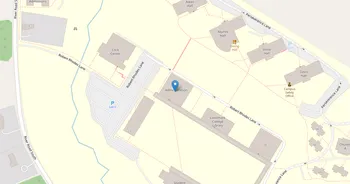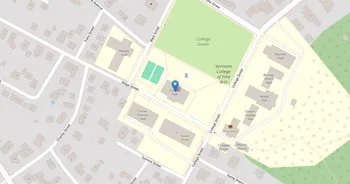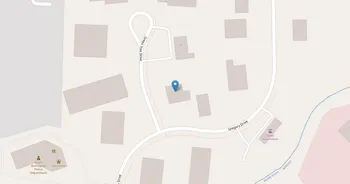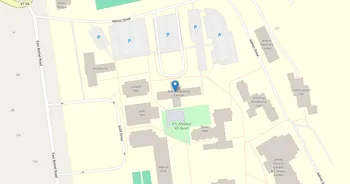University of Vermont (UVM) : Overview, Courses, Scholarships & Rankings
About University of Vermont
Perched above Lake Champlain with mountain views, the University of Vermont pairs a classic New England green with busy research spaces. It's known for strengths in environmental and life sciences, health fields, engineering, social sciences, and the arts. Classes lean hands-on and discussion-based, supported by well used libraries, studios, labs, a fitness and rec complex, and student services that include advising, tutoring, health and counseling.
Student life tilts outdoorsy and civic minded, with clubs, service projects, and plenty of music just off campus. Hockey nights are loud, and weekends can mean hiking, skiing, or paddling before homework. Career prep grows through faculty mentorship and internships with the nearby medical center, schools, nonprofits, and regional companies. Burlington adds a lively downtown, a strong local food scene, and quick access to trails. Distinctive sustainability culture runs deep. Notable alumni include philosopher John Dewey and Nobel laureate Jody Williams.
Key Institutional Details
Contact & Profile
Academic & Institutional
Academic Programs & Fields of Study
University of Vermont (UVM) offers 119 degree programs across 24 major academic fields, graduating approximately 3,373 students annually. The most popular fields by graduate volume are Health (15 programs, 544 graduates), Biological Sciences (13 programs, 328 graduates), Natural Resources (5 programs, 302 graduates), Business (4 programs, 291 graduates) and Education (18 programs, 242 graduates). Explore program details, award levels, and graduate demographics below.
Health (15 programs, 544 graduates)
Healthcare Professions, Medical Sciences and Clinical Practice
| Program Name | Graduates | Gender Distribution | Award Levels | CIP Code |
|---|---|---|---|---|
| Medicine | 120 |
|
Doctorate (P)
|
51.1201 |
| Registered Nursing | 114 |
|
Bachelor's
|
51.3801 |
| Public Health | 69 |
|
Bachelor's
Postbac Cert.
Master's
|
51.2201 |
| Health and Wellness | 39 |
|
Bachelor's
|
51.0001 |
| Communication Sciences and Disorders | 37 |
|
Bachelor's
Master's
|
51.0201 |
| Medical Science | 33 |
|
Master's
|
51.1401 |
| Physical Therapy | 28 |
|
Doctorate (P)
|
51.2308 |
| Nursing Science | 28 |
|
Master's
Doctorate (P)
|
51.3808 |
| Health Behavior | 27 |
|
Bachelor's
|
51.2212 |
| Dietetics | 21 |
|
Bachelor's
Master's
|
51.3101 |
| Clinical Laboratory Science and Medical Technology | 13 |
|
Bachelor's
Master's
|
51.1005 |
| Medical Radiologic Technology | 7 |
|
Bachelor's
|
51.0907 |
| Clinical and Translational Science | 4 |
|
Master's
Doctorate (R)
|
51.1402 |
| Health Administration and Management | 2 |
|
Postbac Cert.
|
51.0701 |
| Rehabilitation Science | 2 |
|
Doctorate (R)
|
51.2314 |
Biological Sciences (13 programs, 328 graduates)
Life Sciences, Biotechnology and Biomedical Research
| Program Name | Graduates | Gender Distribution | Award Levels | CIP Code |
|---|---|---|---|---|
| Biology and Biological Sciences | 117 |
|
Bachelor's
Master's
Doctorate (R)
|
26.0101 |
| Neuroscience | 66 |
|
Bachelor's
Doctorate (R)
|
26.1501 |
| Wildlife Biology | 31 |
|
Bachelor's
|
26.0709 |
| Biochemistry | 21 |
|
Bachelor's
Master's
|
26.0202 |
| Botany and Plant Biology | 20 |
|
Bachelor's
Master's
Doctorate (R)
|
26.0301 |
| Molecular Biology | 19 |
|
Bachelor's
Master's
|
26.0204 |
| Zoology and Animal Biology | 16 |
|
Bachelor's
|
26.0701 |
| Microbiology | 13 |
|
Bachelor's
|
26.0502 |
| Pharmacology | 10 |
|
Master's
|
26.1001 |
| Biological and Biomedical Sciences | 9 |
|
Master's
Doctorate (R)
|
26.9999 |
| Pathology and Experimental Pathology | 4 |
|
Master's
|
26.0910 |
| Biostatistics | 1 |
|
Master's
|
26.1102 |
| Epidemiology | 1 |
|
Postbac Cert.
|
26.1309 |
Natural Resources (5 programs, 302 graduates)
Environmental Science and Natural Resource Management
| Program Name | Graduates | Gender Distribution | Award Levels | CIP Code |
|---|---|---|---|---|
| Environmental Studies | 121 |
|
Bachelor's
|
03.0103 |
| Environmental Science | 105 |
|
Bachelor's
|
03.0104 |
| Natural Resources Conservation | 32 |
|
Bachelor's
Master's
Doctorate (R)
|
03.0101 |
| Forestry | 26 |
|
Bachelor's
|
03.0501 |
| Environmental and Natural Resource Tourism | 18 |
|
Bachelor's
|
03.0207 |
Business (4 programs, 291 graduates)
Business Administration, Marketing and Entrepreneurship
| Program Name | Graduates | Gender Distribution | Award Levels | CIP Code |
|---|---|---|---|---|
| Business Administration and Management | 249 |
|
Bachelor's
Postbac Cert.
Master's
|
52.0201 |
| Social Entrepreneurship | 22 |
|
Bachelor's
|
52.0704 |
| Management Sciences and Quantitative Methods | 11 |
|
Master's
|
52.1399 |
| Accounting | 9 |
|
Master's
|
52.0301 |
Education (18 programs, 242 graduates)
Educational Sciences, Teaching Methods and Pedagogy
Engineering (7 programs, 242 graduates)
Engineering Sciences and Applied Technology Solutions
| Program Name | Graduates | Gender Distribution | Award Levels | CIP Code |
|---|---|---|---|---|
| Mechanical Engineering | 92 |
|
Bachelor's
Master's
Doctorate (R)
|
14.1901 |
| Biomedical Engineering | 52 |
|
Bachelor's
Master's
Doctorate (R)
|
14.0501 |
| Civil Engineering | 39 |
|
Bachelor's
Master's
Doctorate (R)
|
14.0801 |
| Environmental Health Engineering | 32 |
|
Bachelor's
|
14.1401 |
| Electrical and Electronics Engineering | 23 |
|
Bachelor's
Master's
Doctorate (R)
|
14.1001 |
| Industrial Engineering | 3 |
|
Bachelor's
|
14.3501 |
| General Engineering | 1 |
|
Bachelor's
|
14.0101 |
Social Sciences (6 programs, 227 graduates)
Sociology, Anthropology and Political Science Studies
| Program Name | Graduates | Gender Distribution | Award Levels | CIP Code |
|---|---|---|---|---|
| Political Science and Government | 85 |
|
Bachelor's
|
45.1001 |
| Economics | 36 |
|
Bachelor's
|
45.0601 |
| Anthropology | 35 |
|
Bachelor's
|
45.0201 |
| Sociology | 34 |
|
Bachelor's
|
45.1101 |
| Geography | 19 |
|
Bachelor's
|
45.0701 |
| Development Economics and International Development | 18 |
|
Bachelor's
Master's
|
45.0604 |
Psychology (1 programs, 210 graduates)
Psychological Sciences, Mental Health and Behavioral Studies
| Program Name | Graduates | Gender Distribution | Award Levels | CIP Code |
|---|---|---|---|---|
| General Psychology | 210 |
|
Bachelor's
Master's
Doctorate (R)
|
42.0101 |
Interdisciplinary (7 programs, 156 graduates)
Cross-Disciplinary Studies and Integrated Research Programs
| Program Name | Graduates | Gender Distribution | Award Levels | CIP Code |
|---|---|---|---|---|
| Nutrition Sciences | 63 |
|
Bachelor's
Master's
Doctorate (R)
|
30.1901 |
| Global Studies | 29 |
|
Bachelor's
|
30.2001 |
| Systems Science and Theory | 27 |
|
Postbac Cert.
Master's
Doctorate (R)
|
30.0601 |
| Data Science | 15 |
|
Bachelor's
|
30.7001 |
| Sustainability Studies | 10 |
|
Master's
|
30.3301 |
| Historic Preservation and Conservation | 6 |
|
Master's
|
30.1201 |
| Multi- and Interdisciplinary Studies | 6 |
|
Bachelor's
|
30.9999 |
Computer & IT (2 programs, 122 graduates)
Computer Science, Information Technology and Cybersecurity
| Program Name | Graduates | Gender Distribution | Award Levels | CIP Code |
|---|---|---|---|---|
| Computer Science | 114 |
|
Bachelor's
Master's
Doctorate (R)
|
11.0701 |
| Computer Systems Analysis | 8 |
|
Bachelor's
|
11.0501 |
Admission Requirements & Test Scores
Comprehensive overview of admission criteria, standardized test score ranges, and application requirements for prospective students at University of Vermont (UVM).
Application Requirements
Data based on IPEDS for 2022-2023 academic year. Test score ranges represent the middle 50% of admitted students (25th-75th percentile). Requirements may vary by program.
Tuition, Fees & Estimated Costs
Overview of tuition rates, housing, and other annual education expenses for undergraduate and graduate students
Financial Aid & Student Support
Summary of scholarships, grants, student loans, and financial aid statistics for undergraduate students
Student Success Metrics
Graduation rates and post-graduation earnings to help assess student outcomes and long-term value of education.
Loan Burden & Repayment Outcomes
Breakdown of loan repayment rates and student debt levels by income and dependency status.
Frequently Asked Questions
Find answers to the most common questions about University of Vermont (UVM)
How much does it cost to attend University of Vermont (UVM)?
The annual tuition at University of Vermont (UVM) is $18,890 for in-state students and $43,890 for out-of-state students. When including room and board, books, and other expenses, the total estimated cost is approximately $35,798 for in-state students and $60,798 for out-of-state students. Additional costs include room and board $13,354 (on) / $15,014 (off) and books and supplies $1,200.
Data based on IPEDS program completions for 2022-2023 academic year. Tuition and cost estimates are approximate and may not include all fees, personal expenses, or transportation costs.
What academic programs and degree levels does University of Vermont offer?
University of Vermont (UVM) offers 119 academic programs across 24 major fields of study, with available degree levels: Bachelor's, Postbac Cert., Master's, Post-Master's, Doctorate (Research), Doctorate (Professional).
Most popular program areas include:
- Healthcare Professions, Medical Sciences and Clinical Practice (15 programs)
- Life Sciences, Biotechnology and Biomedical Research (13 programs)
- Environmental Science and Natural Resource Management (5 programs)
- Business Administration, Marketing and Entrepreneurship (4 programs)
- Educational Sciences, Teaching Methods and Pedagogy (18 programs)
Data based on IPEDS program completions for 2023-2024 academic year. Numbers reflect programs where students graduated, not all offered programs.
What is the acceptance rate for University of Vermont?
University of Vermont (UVM) has an 60% acceptance rate and a 17.1% yield rate, making it selective.
Admission statistics breakdown:
- Total applicants: 28,236
- Students admitted: 16,947
- Students enrolled: 2,896
Data based on IPEDS for 2022-2023 academic year. Admission statistics may vary by program and application cycle.
What financial aid and scholarships are available at University of Vermont?
University of Vermont (UVM) provides financial aid to 25% of first-time, full-time students, with average grants of $19,093 and average loans of $10,346.
Average financial aid amounts by type:
- Pell grants: $4,975
- State/Local grants: $4,681
- Institutional grants: $17,822
- Federal loans: $5,164
The university supports 2,974 students with grants and 1,374 students with loans annually.
Data based on IPEDS for 2022-2023 academic year. Financial aid amounts and percentages may vary by program, enrollment status, and individual circumstances.
What is the average salary for University of Vermont graduates?
University of Vermont (UVM) graduates earn a median salary of $48,164 after 6 years and $62,472 after 10 years.
The salary range 10 years after graduation spans from $39,819 (25th percentile) to $91,148 (75th percentile).
Data based on IPEDS for 2022-2023 academic year. Salary data reflects graduates who received federal financial aid (approximately 60% of all graduates). Actual earnings may vary significantly based on program, location, and individual circumstances.
Related Universities




Found something useful? Help others discover it too! Share with friends, on social media, or save for later - every share helps someone find the information they need.